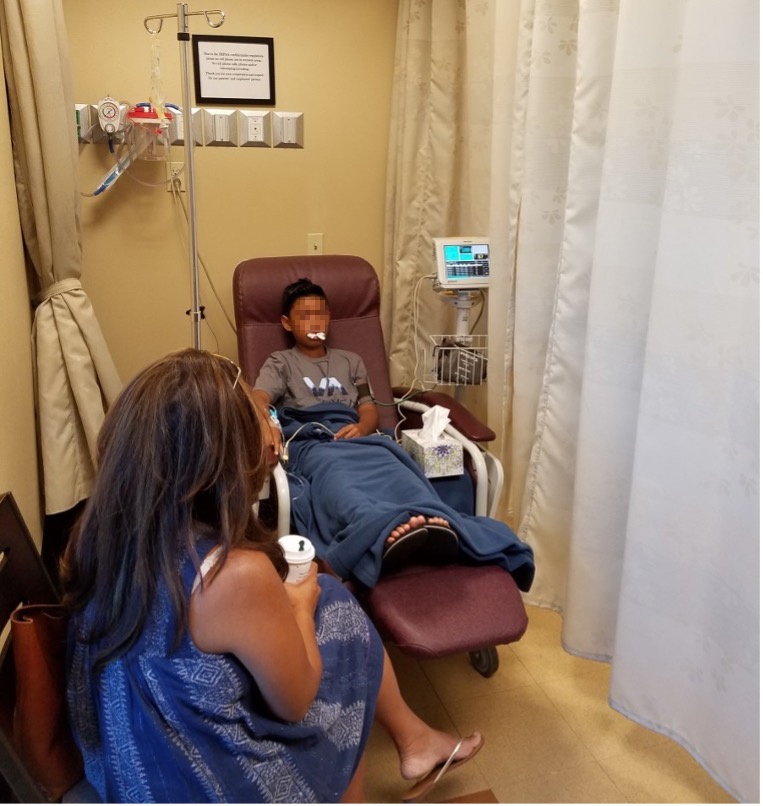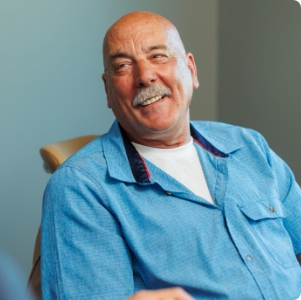Dr. Dudziak, Dr. Choi, Dr. Hicke, Dr. Paxman, Dr. Kim, and Dr. Hanna all offer the option of going to sleep or sedation so that you are not aware of the unpleasant experience of having surgery performed in your mouth. It helps you keep comfortable and calm. It also allows us to perform careful surgery without worrying about patient movement. This is the perfect option for you if you are dental phobic, have anxiety, or have a pronounced gag reflex.
Oral & maxillofacial surgeons are trained in all aspects of anesthesia administration. Four months of training are spent on rotation with the medical anesthesiology service, where they manage and deliver anesthesia to hospital patients. Drs. Dudziak, Choi, Hicke, Paxman, Kim, and Hanna are experienced in airway management, endotracheal intubation, establishing and maintaining intravenous lines, and managing complications and emergencies that may arise during the administration of anesthesia.
Our facilities are all permitted by the Dental Board to administer general anesthesia. This involves an onsite inspection and evaluation of the surgeon, the facility, equipment, personnel, and procedures every 5 years.
We perform thousands of IV anesthetics annually and pride ourselves on our safety record. Drs. Dudziak, Choi, Hicke, Paxman, Kim, and Hanna are certified in: Advanced Cardiac Life Support (ACLS), Basic Life Support (BLS or CPR), and Pediatric Advanced Life Support (PALS). Our surgical assistants are CPR and DAANCE (Dental Anesthesia Assistant National Certification Examination) certified.
We also work with anesthesiologists to help us with more challenging situations, such as young children, special needs patients, or longer, complex cases.
Our Anesthesia or Sedation Options
Our doctors recommend anesthesia options based on the nature of the procedure, the medical history of the patient, and the patient’s stated preference. Your options include:
- Nitrous Oxide or laughing gas – This is delivered through a nasal hood. It makes you feel calm and happy throughout your procedure and blunts your pain response. However, you are still aware of your surroundings.
- IV conscious sedation – You are in a very calm, twilight state where you may be partially aware of your surroundings and not have much memory of your procedure. This is a good option for those who do not want to be completely put under and still be in control of their senses. It is also a safer option for older patients with medical problems.
- IV general anesthesia – This is when you want to be fully asleep and have absolutely no memory or awareness of the procedure. This is good for more invasive procedures, longer cases, patients with anxiety and dental phobia, and severe gaggers.
Can You Describe IV Sedation in More Detail?
Your safety and comfort are our number one priority. Before the procedure, we place various monitors on your body, including:
- Pulse oximetry – measure oxygen levels in your blood
- Blood pressure cuff – measures blood pressure
- 3 lead ECG – measures your heart rhythm
- End tidal CO2 – monitors your breathing (specifically exhalation)
- Pre-cordial stethoscope – listens to your breathing
We also deliver oxygen through your nose via a cannula or hood. This is to make sure you maintain adequate oxygen levels throughout your sedation.
An IV is placed in your arm with a cold, numbing spray so that it is painless. The sedation medications are delivered through the IV, and you no longer remember anything else.
It is important that you fast (nothing to eat or drink) past midnight the day before your procedure until the time of your procedure. If you take daily medications for blood pressure in the morning, make sure you take them with a small sip of water.
What Can I Expect After Sedation?

After IV sedation, it is common to be disoriented and groggy. You will be monitored in our recovery area until you emerge fully from the anesthetic and are fully awake. Uncommonly, patients can become nauseous afterward. We give medications through the IV to help prevent nausea. Our office has a convenient back door exit through which our friendly staff will escort you out in a wheelchair. We recommend that you do not operate heavy machinery or make important decisions the rest of the day.
What About Oral Sedation for Kids?
We are always happy to talk with parents about safe, effective sedation options for their children. Nitrous oxide can be an especially good option for kids who are frightened or overwhelmed by the prospect of oral surgery.
Pre-operative Instructions
- You may not have anything to eat or drink (including water) for six (6) hours prior to the appointment.
- If you take routine oral medications, please check with your doctor prior to your surgical date for instructions.
- Take all previously prescribed medication that has been approved by your doctor with a sip of water unless instructed otherwise.
- Please brush your teeth prior to your appointment, but be sure not to swallow any water.
- Ideally, cut down or stop smoking as soon as possible prior to the day of surgery.
- A responsible parent or legal guardian must accompany the patient to the office, remain in the office during the procedure, and drive the patient home.
- The patient should not drive a vehicle or operate any machinery for 24 hours following the anesthesia experience.
- Please wear loose fitting clothing with sleeves that can be rolled up past the elbow and low-heeled shoes.
- Contact lenses, jewelry, and dentures must be removed at the time of surgery.
- Do not wear lipstick, excessive makeup, or nail polish on the day of surgery.
- If you have an illness such as a cold, sore throat, stomach or bowel upset, please notify the office.
- Medications that may be recommended before surgery:
- If you are an asthmatic, please bring your inhaler
- Pepcid Extra Strength 20 mg: take one the night before the surgery and the morning of surgery (with just enough water to swallow the pill)
- Antibiotics
Post-operative Instructions
After IV sedation, it is common to be disoriented and groggy. You will be in our recovery area until you emerge fully from the anesthetic and are fully awake. Sometimes patients can also become nauseous afterward. We give medications through the IV to help prevent nausea. Our office has a convenient back door exit through which our friendly staff will escort you out in a wheelchair. We recommend that you do not operate heavy machinery or make important decisions the rest of the day.
You’re in Good Hands with Our Doctors
Inland Empire Oral & Maxillofacial Surgeons has a reputation for clinical excellence, warm and welcoming patient care, and best-in-class technology. Our entire staff is committed to providing you with a smooth and comfortable experience, ensuring your safety while helping you achieve full restoration of your oral and facial health. To schedule a consultation, we invite you to contact us at one of our many locations.







